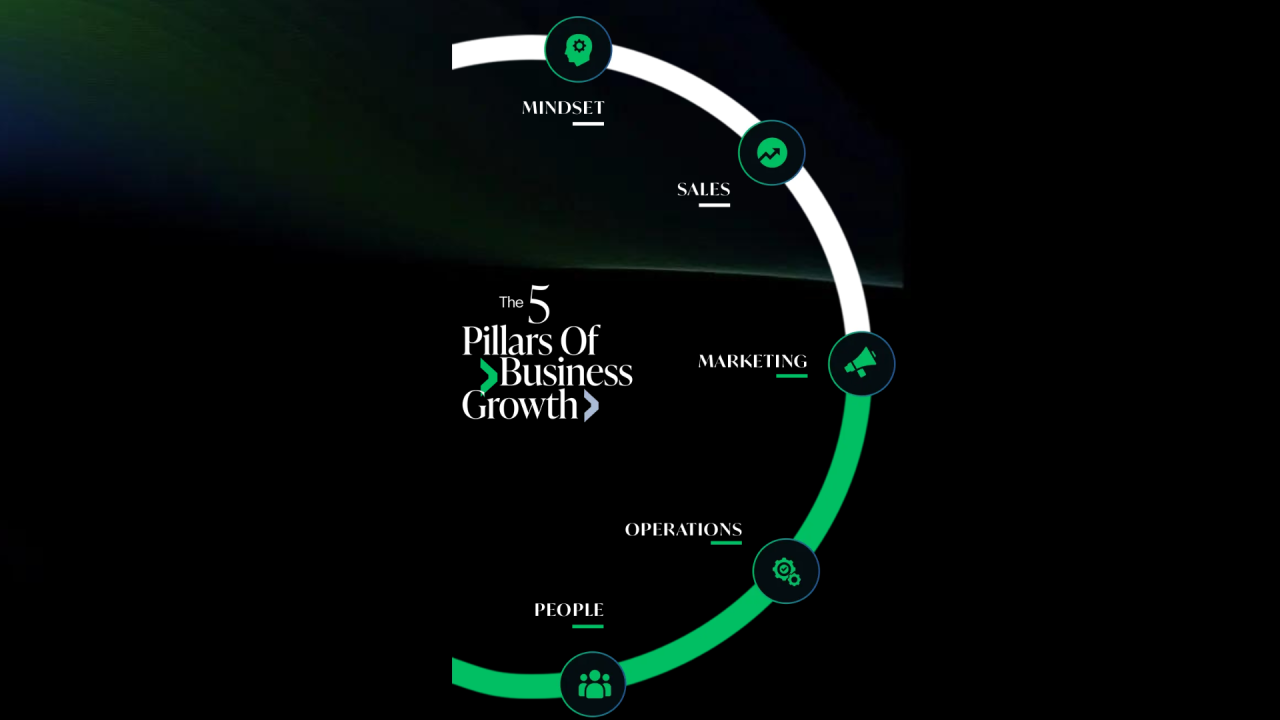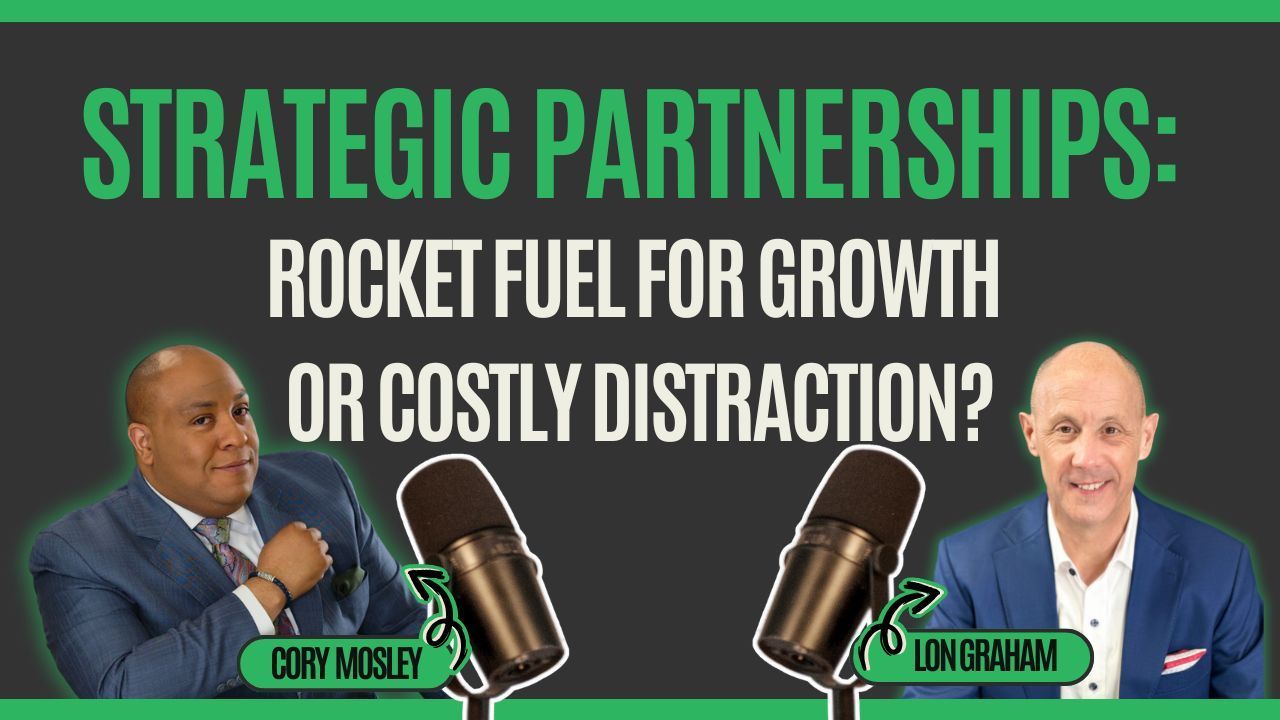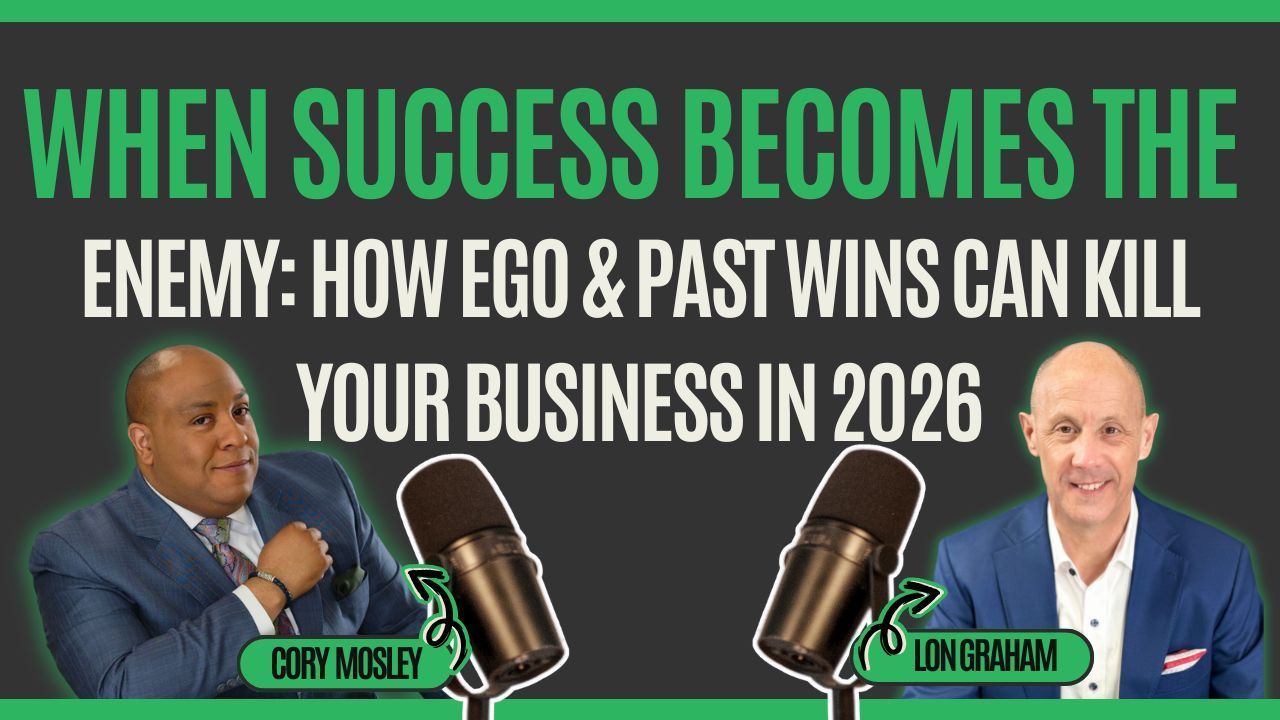5 Pillars to Transform Your Business Growth
Cory Mosley

In today's business landscape, filled with both challenges and opportunities, understanding the crucial areas for focus can be transformative. A new approach to consulting is emerging, one that goes beyond traditional advisory roles to include active, hands-on implementation. This paradigm shift is revolutionizing how small businesses approach growth, change, and progress. At its core are five key pillars: mindset, sales, marketing, operations, and people.
The 5 Pillars Explained
- Mindset: The foundation of successful business growth starts with the right mindset. Embracing change, fostering resilience, and committing to continuous learning are essential. This mindset prepares you to tackle new and sometimes uncomfortable challenges head-on, paving the way for growth.
- Sales: Sales are the lifeblood of any business, but increasing them requires more than just hitting targets. It involves a deep understanding of customer needs, refining your value proposition, and building authentic connections that drive long-term success.
- Marketing: Modern marketing is more than just loud promotions; it's about reaching the right audience with messages that resonate and convert. Effective marketing strategies involve understanding your audience deeply and communicating in a way that meets their needs.
- Operations: A robust and flexible operational backbone is crucial. Streamlining operations isn’t just about cutting costs but enhancing overall efficiency and productivity. It involves optimizing processes to ensure your business runs smoothly and adapts to changing conditions.
- People:
Your team is the heart of your business. Investing in their growth, aligning their objectives with business goals, and fostering a supportive environment are key to building a motivated and effective workforce.
The Evolving Role of Consultants
The traditional model of consulting, where experts provide high-level advice and then depart, is becoming obsolete. Today's businesses need more than just diagnostic insights—they require implementation partners who actively participate in solving problems and executing strategies.
This shift reflects a broader change in the business landscape, emphasizing that expertise must be coupled with action. Consultants are now expected to be hands-on, working alongside businesses to put strategies into practice and drive tangible results.
Why This Shift Matters
For small and medium-sized enterprises (SMEs), this comprehensive approach is not just beneficial but essential. In rapidly changing markets, SMEs must seize opportunities and overcome challenges in real-time. They need consultants who are not just advisors but active collaborators in implementing strategies.
This transformation from passive to active consulting highlights the need for action-oriented partnerships. It represents a significant shift in how business success is achieved, focusing on practical, actionable solutions rather than just theoretical advice.
Becoming an Effective Implementation Partner
To transition from a traditional consultant to an effective implementation partner, consider these strategies:
- Deep Understanding: Go beyond surface-level issues to grasp the core challenges businesses face.
- Customized Solutions: Tailor your strategies to meet the unique needs of each client, recognizing that one size does not fit all.
- Build Strong Partnerships: Cultivate valuable relationships that enhance your ability to implement solutions effectively.
- Embrace Flexibility: Be ready to adjust strategies based on evolving circumstances and ongoing feedback.
Moving Forward
Adopting these five pillars and committing to a hands-on approach marks the start of a new era in consulting. This transition offers a chance to redefine how growth and success are achieved in your business.
Ready to elevate your business? Explore how an implementation-focused consulting partner can help you turn strategies into actionable results. To learn more about transforming your approach to business growth, visit
corymosley.com. Embrace the change, and make your growth strategy a reality.
Key Takeaways
- Leverage the Pillars: Understanding and applying the five pillars—mindset, sales, marketing, operations, and people—can simplify and address complex growth challenges.
- Move Beyond Advice: Transitioning from traditional consulting to an implementation-focused role significantly enhances the value consultants provide.
- Adopt a Practical Approach: Effective consulting requires not just strategic insight but also actionable, practical solutions.
- Prepare for Change: Embrace the evolving consulting landscape and the shift towards more involved, dynamic partnership models.
Business success today demands not just great ideas but the ability to execute them effectively. As you chart your path forward, remember the importance of these pillars and consider how an implementation-focused approach can accelerate your growth.
Share Post
Similar Posts








